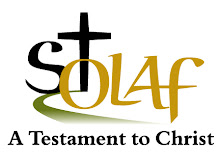This title is actually the subheading of Chapter 1 in Section 1 of Part Four of the Catechism of the Catholic Church (CCC) on Prayer. Did I lose you with that sentence? I wouldn’t be surprised if I did since I almost got lost myself in writing it.
The CCC (2567) explains that we should not “forget” our God or even “hide far” from Him. He calls us always to pray each and every day, whenever we have the opportunity so we stay connected to Him. This invitation to prayer has been there from the beginning of time and is still unfolding with us and will continue with our children and our children’s children until the end of time.
God has called us to prayer particularly “beginning with our father Abraham”, (CCC 2569) using covenant as the word to describe this relational prayer. Abraham could have said, “You are crazy, why would I do what you are telling me to do?” when God called him, but he didn’t. Abraham knew in his heart that the Word of God was the true way and he obeyed. Paying attention to what your heart is saying when praying is essential in a life of prayer. Our present day minds tell us not to listen to our “heart”, that what the media, advertising and other people tell us is what we need to believe. How can we overcome those outside “voice” to listen to the one voice we need to hear when we pray? Practice, practice, practice… Really, you say? Yes, really. No matter how often or how long we pray the majority of us need to refocus more often than not. Some times are better than others depending on our state of mind, but for the most part we need to become disciplined in being quiet and listening. “Prayer restores man to God’s likeness and enables him to share in the power of God’s love that saves the multitude.” (CCC 2572)
Are you willing and able to let prayer lead your life? That is a question we all wonder if it is possible. When we do let this happen things may not go as we think they should, but in the final analysis the outcome is very similar to what we had hoped for with our original prayer. If we ignore the fact that we can pray and instead try to take matters into our own hands the bumps in the road are huge and we wonder where we went wrong.
Who else in the Old Testament turned themselves over to God in prayer to be led to His Kingdom? Check back and see.
(Catechism of the Catholic Church: October 2010, USCCB, Libreria Editrice Vaticana)



